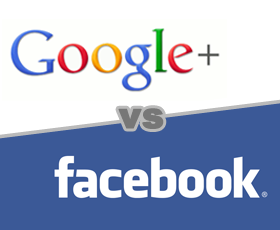 As an industry insider – on way more than one level – it’s hard to take Pete Townshend’s comments as anything more than another great artist railing at the system. Look, in the end, we all have to admit that the system is broken. That’s one thing that Townshend got right in that interview. After that? Well, it’s all up for debate. But the fact that the debate was called to the floor again, that’s a good thing.
As an industry insider – on way more than one level – it’s hard to take Pete Townshend’s comments as anything more than another great artist railing at the system. Look, in the end, we all have to admit that the system is broken. That’s one thing that Townshend got right in that interview. After that? Well, it’s all up for debate. But the fact that the debate was called to the floor again, that’s a good thing.
Let’s look at what he probably got wrong. Apple is not the villain here. In fact, probably the opposite. Apple is responsible for 75% of all LEGAL music downloads. And there’s no way that this makes them a vampire. It makes them a hero, of sorts. By creating a closed system, where one download went to ONE machine, Apple stopped the bleeding of way more than royalties. It addressed a cultural shift that it was OKAY to steal music. “Sharing.” So there’s something else that Townshend got right in that interview. Stealing and sharing are not the same thing – and the mere idea that music should be free is an utter insult to the millions of people who give their lives to create it.
I should disclose here that I was part of Apple way back when and helped launch digital music before it broke wide open, but my 13+ years in digital consultancy have certainly shown me every side of this equation (and argument).
Whether or not music should be free has gone where it belongs. It’s gone to artist-controlled DIY. DIY creation and DIY distribution. The indie artists have unlocked the code. Give away great material to build a tribe, and get that tribe to adore you. They’ll show up with the money, for sure, but only after the love affair has begun.
Here’s the other problem with Pete’s point of view – it assumes that Apple controls the digital distribution industry, and quite simply, it does not. In the world of Spotify and MusicShark and locker systems, Apple is only one giant float in the parade. Let’s clarify, they may even be leading the parade, but after a brief initial claim to the universe, way back when, they’re far from alone. Having said that, it’s obvious that the consumer, overall, loves Apple. Quite simply, in the words of futurist Gerd Leonhard, it’s easy. It’s a plug and go solution. It meets busy consumers where they want to be met, and serving the consumer IS the end game on the business side of music (and anything digital).
The artistic side? Producing great content and hiring mentors to aide and abet that? I wish I could ask Townshend why that is at all iTunes’ responsibility. That is a model that we see fading at every label, sadly (& that’s me wearing my hat as a former A&R exec at one of the majors). From this insider’s viewpoint, however, it will fade, but not die. There is a space for grooming artists, from a label’s point of view – otherwise we end up with the music industry’s version of Yentl for every project. (The same Editor, Producer, Writer and Actress, if you needed me to spell out that comparison.) Without label support, bands have limited objectivity of their work, at best. But we KNOW what percentage of artists get signed. So this new world of digital DIY is an amazing opportunity for artist AND consumer. Which brings us to Townshend’s issue with gatekeepers – one that social media and DIY will summarily trump, given enough time. Spaces like iLIke and Facebook will level the playing field.
Finally, it’s NOT Apple’s job to bridge the gap between labels and DIY. They are, like it or not, a retailer. Why should they be expected to fix what’s broken in music? The business model for direct sales/acquisition of recorded music in the traditional sense is collapsing.
But with all of the GREAT minds in the digital and music space, of course we’ll find a new model. Music does far more than soothe the savage breast, it is the most vital language of unification. Ask the millions of Chinese listening to Gaga or Beiber – or just look at the worldwide recognition of Mozart. Or the global domination of Idol.
Yes, there are definitely parts of the foundation with cracks, or worse, but I have full confidence from my life experience of consulting with the industry leaders and artists, that we’ll find a new and more powerful model to propel us forward. Until then, in the immortal words of Sonny and Cher, the beat goes on.
Kelli Richards
CEO
The All Access Group, LLC


